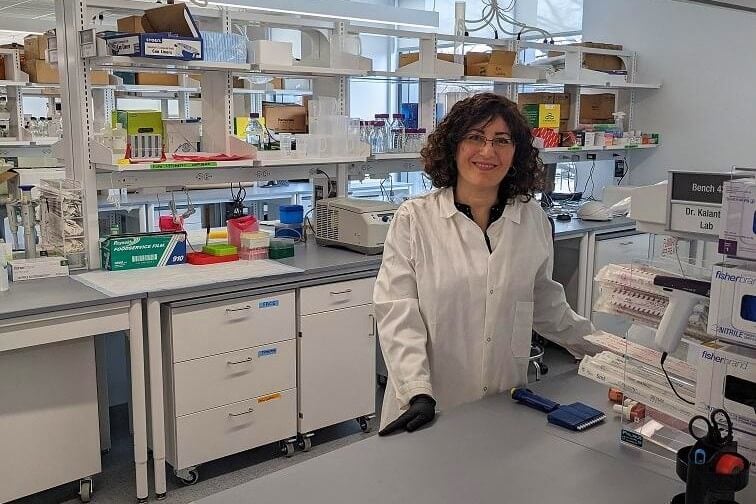Key Points
- Type I interferon protein plays a critical role in suppressing inflammation caused by the schistosome parasite.
- This discovery could lead to new therapies for those suffering from schistosomiasis, a widespread parasitic disease.
- Understanding the molecular pathways involved may help treat schistosomiasis and other inflammatory conditions.
Penn State immunology researchers have discovered that a protein called Type I interferon is vital for fighting off inflammation in mice infected with the schistosome parasite. This breakthrough may lead to effective treatments for people suffering from schistosomiasis, a disease second only to malaria as the most common parasitic illness worldwide.
Parisa Kalantari, assistant professor of immunology at Penn State’s College of Agricultural Sciences, and her co-authors recently published these findings in Proceedings of the National Academy of Sciences.
Schistosomes are waterborne parasitic worms that cause over 250 million human infections across the globe. Schistosomiasis symptoms can range from an itchy rash, fever, chills, and muscle aches to severe abdominal pain, an enlarged liver and spleen, and even death in the worst cases.
The disease is most common in Africa, South America, and Asia. Schistosomes live in freshwater, infecting people who enter streams or lakes to cool off, swim or bathe. Schistosomiasis has a high rate of reinfection, meaning even those who have recovered can be reinfected when they return to the water.
Although a drug called Praziquantel can treat some cases, certain strains of schistosomes are resistant, and there is no vaccine available. While most infected people develop a mild form of the disease, 5-10% of cases are severe and life-threatening.
“That’s why it’s important to develop more therapies to treat this disease,” Kalantari said.
Kalantari and her graduate students want to understand why some people develop only a mild form of the disease, while others develop the severe form.
“To learn more about these molecular mechanisms, my laboratory focuses on studying immune responses and immunopathology in a mouse model of schistosomiasis, which has a remarkable similarity to the human condition,” she explained.
Kalantari explained that many schistosomiasis symptoms result from the body’s reaction to the eggs produced by the worms. While most eggs leave the body, some become trapped in body tissues, damaging organs like the liver. The immune system tries to eliminate the schistosome eggs, causing inflammation.
Kalantari and her colleagues found an immune mechanism that protects the host from developing severe immunopathology, resulting in smaller granulomas and less inflammation.
“So we can see that type I interferon is protective for the host and that it is important for decreasing and suppressing inflammation,” Kalantari said.
During their research, Kalantari and her team discovered a second mechanism that affects the immune response to schistosomes. They found that high levels of a protein called gasdermin D are present in specific immune cells in mice with severe disease. This inflammatory molecule can suppress the protective type I interferon pathway, leading to inflammation and severe disease.
Kalantari’s findings represent a significant step in understanding these two molecular pathways.
“When it comes to implications for human health, understanding how these pathways function could lead to identifying strategies, such as interferon therapy, that could treat schistosomiasis and other inflammatory conditions,” she said.

